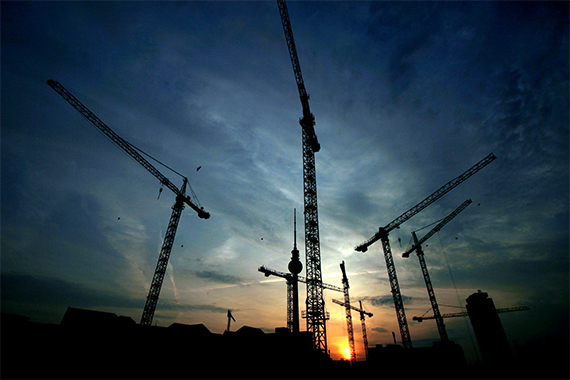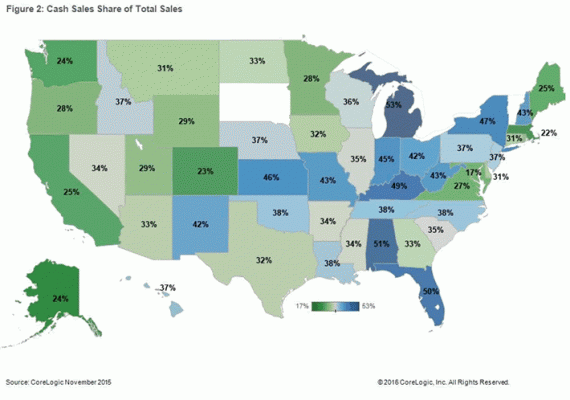Cash Sales
Cash sales in Miami-Dade County continued to decline in November as fewer distressed properties traded. Still, more than half of the county’s transactions were completed without financing.
Roughly 52 percent of all home sales in Miami-Dade during November were cash deals, according to a new report from CoreLogic.
That number fell by 5.6 percent compared to November 2014, marking a significant decline in the county’s cash deals over a year.
At least part of that decline can be attributed to the market’s lack of distressed properties. About 63 percent of buyers who picked up a lender-owned home paid cash during November, according to the report.
However, only 8.7 percent of the county’s home sales that month were distressed. That’s a far cry from the peak in January 2011, when nearly 24 percent of all homes sold in Miami were foreclosed.
Despite this market trend of fewer cash sales, Miami ranked third in the country for those deals in November. The top spot went to Detroit with 61.5 percent, followed by Miami’s neighbor West Palm Beach with 50.4 percent.
Nationwide, cash deals made up 36.4 percent of the country’s home sales in November. The national rate fell by only 0.7 percent year-over-year.

Construction cranes
Construction Contracts
January was a slow month for construction spending in South Florida, overall, with dollar figures for new contracts falling by more than half year-over-year depending on the sector.
Developers spent a total of $610 million on new construction contracts last month, which is roughly 16 percent less than what they spent in January 2016, according to a new report from Dodge Data & Analytics.
Most of that poor comparison comes from the nonresidential sector, which includes everything from government buildings to churches, warehouses and hotels. A total of $137 million was spent on building those types of properties in January, marking a decrease of 58 percent year-over-year.
Residential contracts, on the other hand, actually saw growth during the same timeframe. Developers signed off on $473 million worth of building contracts in January, up 18 percent from the $399 million spent in the first month of 2016.
Those figures are flipped from the final months of 2015, when South Florida saw a heavy dip in residential building as the market slowed. Nonresidential construction appeared to be booming as developer’s focus shifted, according to previous reports from Dodge Data & Analytics.
Yet residential construction spending, which typically far outweighs nonresidential spending, has begun to grow into the new year.
